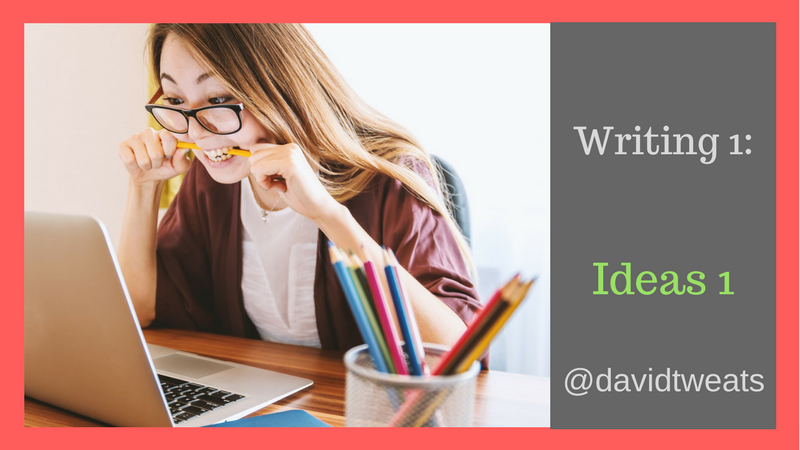
Platforms like Kindle Direct Publishing have opened up the possibility of becoming a published author to millions of people who formerly dreamed of publication, but had little chance of it ever happening for them. There are many, like myself, who have wanted to write since childhood, and others who have seen the possibilities, and like the idea of publishing books - maybe to promote their business, perhaps to see their name in print, or for whatever reason.
But what to write about? For some people, there is a passionate interest in a topic which works its way out onto real or virtual paper. Others are blessed with a vivid and fertile imagination, and have notebooks full of ideas for books.
But what if we're not sure what to write about? Where do we get ideas from? Where do we find inspiration? This is the first in a series of posts looking at what we can do to fertilise our imaginations, so that we have a never-ending stream of material for our writing.
In this post I want to talk about reading. I believe that writers should be voracious readers. And not just of a limited range of books. When I was doing my Masters in professional writing, I had to write pieces on topics and in genres that I would perhaps never have chosen by myself. That experience not only made me believe that I could write more broadly than I might have originally thought, it also inspired me to read much more widely.
Previously, my novel-reading was limited mainly to mysteries and thrillers, with some humour thrown in. Non-fiction was usually biographical, or related to writing or business. But now, I will read almost anything. I have picked up chick-lit and enjoyed its lightness and humour. I have enjoyed following sagas, and discovered books that are usually thought to appeal to women rather than men. I haven't enjoyed everything, but most I have.
By reading widely, we learn to write. We get to know what we like and what we don't like; what we think is good and what we think is not so good. We learn what grabs the attention of readers, and what loses it. And we start to find our "voice" - that something which is distinctly our way of writing, but which can be inspired, influenced and shaped by the voices of those who have gone before.
We also find out what to write. Of course, we should never plagiarise, but we can borrow elements of plot, or aspects of characters, or locations. We can think of alternative outcomes to the situations we have just read about. Or we might think of setting a classic book in modern times. We might read non-fiction, but feel that we could bring a fresh perspective to the topic, or cover missing material.
If you want to write, and keep on writing, then read, and keep on reading. Read anything and everything with a curious and open mind. I'm not saying that you should persist with books that you are not enjoying - on the contrary, I would say that we should enjoy what we read so that we can write material that others will enjoy.
We should never feel guilty at picking up a book to read if we are writers, or aspire to be. Reading is part of your education, part of your research, and a very real part of your inspiration.
WARNING - The message you received from @chenie is a CONFIRMED SCAM!
DO NOT FOLLOW any instruction and DO NOT CLICK on any link in the comment!
For more information, read this post: https://steemit.com/steemit/@arcange/phishing-site-reported-upvoteme-dot-ml
Please consider to upvote this warning if you find my work to protect you and the platform valuable. Your support is welcome!
Downvoting a post can decrease pending rewards and make it less visible. Common reasons:
Submit